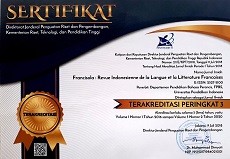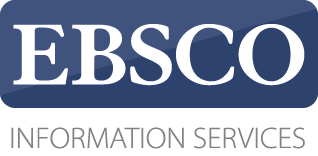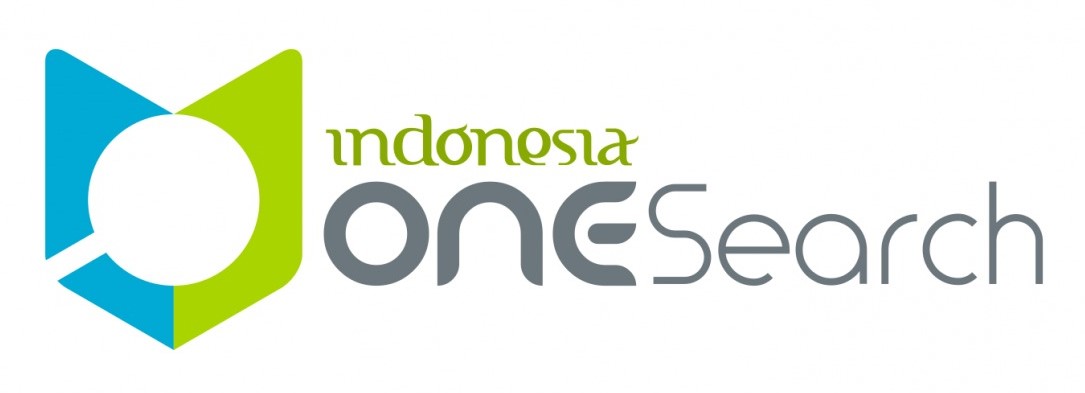Exploring the usage of communicative pedagogy to teach French as a Foreign Language (FFL) in secondary schools in Lesotho
Abstract
French, as a major foreign language after English, significantly contributes to Lesotho’s socio-economic development. The Curriculum and Assessment Policy (CAP) 2009 reintroduced French in secondary schools to strengthen Basotho’s regional and global participation. This study examines the effectiveness of communicative pedagogy in teaching French as a Foreign Language (FFL) in Lesotho. Framed by constructivist theory and an interpretivist paradigm, it employs a qualitative, participatory action research design. Data were collected from S2A French learners at a secondary school in Roma, a locality in Lesotho, through focus group discussions and teacher questionnaires. Findings demonstrate that communicative pedagogy enhances student engagement and linguistic competence, improving overall performance in French. The study advocates for the integration of technology to further enrich communicative language learning environments.
Keywords: communicative pedagogy; constructivist theory; French as a Foreign language; secondary schools; Lesotho
Full Text:
PDFReferences
Aljohani, M. (2017). Principles of “constructivism” in foreign language teaching. Journal of Literature and Art Studies, 7(1), 97-107.
Buriro, A. G., Awan, J. H., & Lanjwani, A. R. (2017). Interview: A research instrument for social science researchers. IJSSHE-International Journal of Social Sciences, Humanities and Education, 1(4), 1-14.
Casteel, A., & Bridier, N. L. (2021). Describing populations and samples in doctoral student research. International journal of doctoral studies, 16(1).
Chung, S. F. (2005). A communicative approach to teaching grammar: theory and practice. The English Teacher, 34(1).
Cornish, F., Breton, N., Moreno-Tabarez, U., Delgado, J., Rua, M., de-Graft Aikins, A., & Hodgetts, D. (2023). Participatory action research. Nature Reviews Methods Primers, 3(1), 34.
Cresswell, J. W. (2016). Qualitative inquiry and research design: Choosing among five approaches. SAGE Publications.
Creswell, J. W. (2018). Qualitative inquiry and research design: Choosing among five approaches. SAGE Publications.
Dooly, M., & Moore, E. (2017). Introduction: Qualitative approaches to research on plurilingual education. Research-publishing. net. La Grange des Noyes.
ECOL. (2024). Examination council of lesotho french DELF A1 examiner’s report 2023.
Golder, J., & Bengal, W. (2018). Constructivism: A paradigm for teaching and learning. International journal of research and analytical reviews, 5(3), 678-686.
Govil, P. (2013). Ethical considerations in educational research. International journal of advancement in education and social sciences, 1(2), 17-22.
Jabeen, S. S. (2014). Implementation of communicative approach. English Language Teaching, 7(8), 68-74.
Kivunja, C., & Kuyini, A. B. (2017). Understanding and applying research paradigms in educational contexts. International Journal of higher education, 6(5), 26-41.
Lephoi-Sooknanan, R. (2021). Exploring the effects of neo-colonialism on the implementation of learner-centered pedagogy (Doctoral dissertation, National University of Lesotho).
Lhadon, P., & Daker, S. (2023). Benefits of communicative method of teaching grammar in a bhutanese higher secondary school: a qualitative study. Asian J. Educ. Soc. Stud, 43(1), 20-31.
Liu, Q. X., & Shi, J. F. (2007). An analysis of language teaching approaches and methods--effectiveness and weakness. Online Submission, 4(1), 69-71.
Manyawu, A. T. (2007). French in Lesotho schools forty years after independence. LWATI: A Journal of Contemporary Research, 4, 67-78.
Matee, L. G. (2019). Opportunities and challenges of implementation of integrated curricululum; a case of english language teaching and learning in Lesotho Pilot Secondary School. National University of Lesotho. Unpublished.
Ministry of Education and Training (2016). Education Sector Plan 2016-2026. Maseru
Ministry of Education and Training Lesotho. (2009). Curriculum and assessment policy.
Ministry of Education and Training. (2009). Needs assessment and drawing up of an action plan for the French learning in secondary schools. Maseru.
O. Nyumba, T., Wilson, K., Derrick, C. J., & Mukherjee, N. (2018). The use of focus group discussion methodology: Insights from two decades of application in conservation. Methods in Ecology and evolution, 9(1), 20-32.
Patton, M. Q. (2015). Qualitative research & evaluation methods: Integrating theory and practice. SAGE Publications.
Richards, J. C., & Rodgers, T. S. (2017). Approaches and methods in language teaching. Cambridge University Press.
Savignon, S. J. (2019). Communicative competence: Theory and classroom practice. In J. C. Richards & W. A. Renandya (Eds.), Methodology in Language Teaching: An Anthology of Current Practice (pp. 156-164). Cambridge University Press.
Smith, J., & Jones, A. (2016). Understanding human behavior: an interpretivist approach. Journal of Social Sciences, 25(3), 45-62.
Sreehari, P. (2012). Communicative Language Teaching: Possibilities and Problems. English Language Teaching, 5(12), 87-93.
Tzenios, N. (2022). Learner-centered teaching. International Research Journal of Modernization in Engineering Technology and Science, 4(12), 916-919.
Wangdi, N., & Chalermnirundorn, N. (2019). Language learning motivation of grade 12 learners in bhutan. Journal of Humanities and Social Sciences Valaya Alongkorn, 14(3), 171-186.
Willie, M. M. (2024). Population and target population in research methodology. Golden Ratio of Social Science and Education, 4(1), 75-79.
DOI: https://doi.org/10.17509/francisola.v10i1.82716
Refbacks
- There are currently no refbacks.
Copyright (c) 2025 FRANCISOLA

This work is licensed under a Creative Commons Attribution-ShareAlike 4.0 International License.
View My Stats











